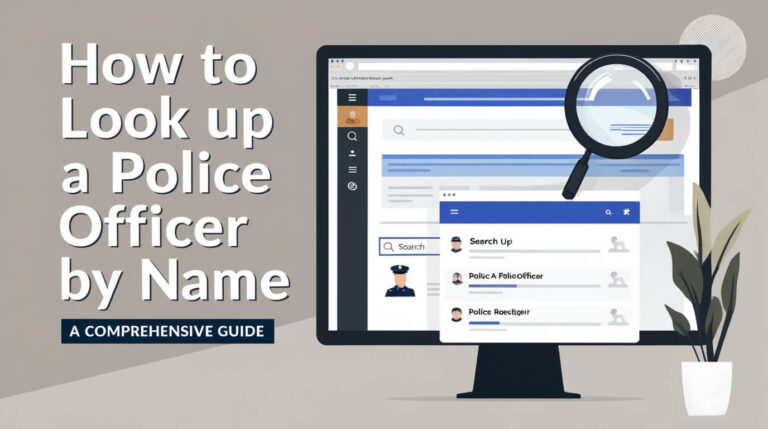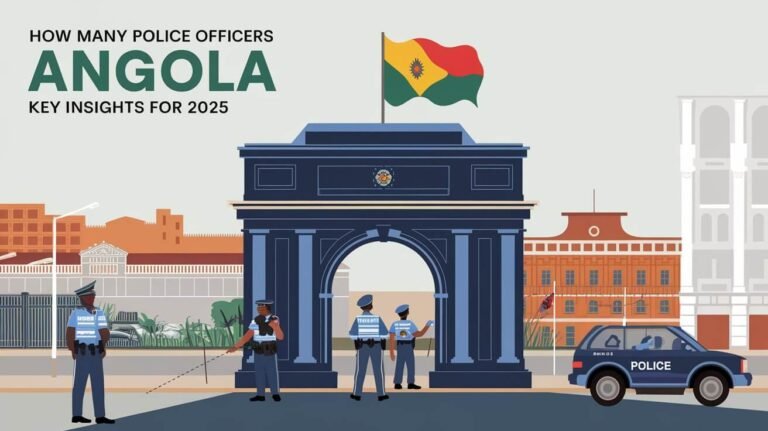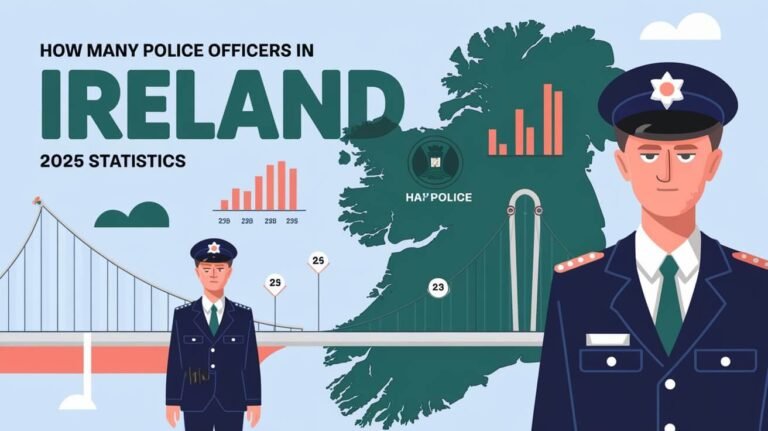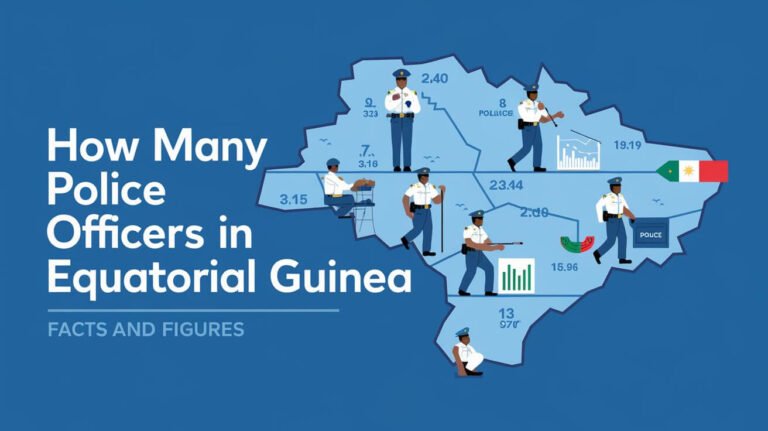What to Expect in Police Training: A Comprehensive Guide
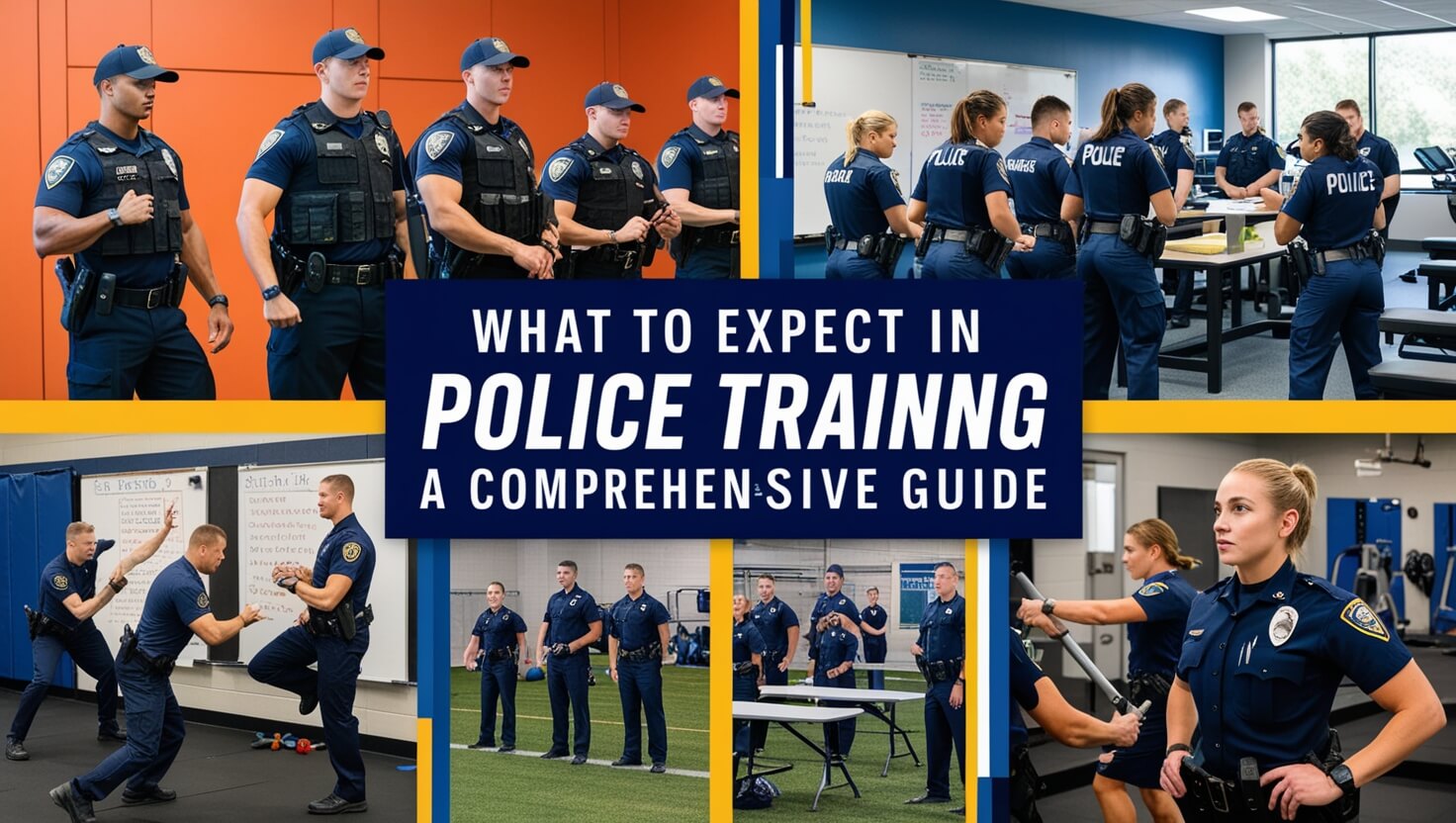
Police training is a rigorous and transformative journey that prepares individuals for the challenges of law enforcement. Police academy training typically lasts 18-22 weeks and covers physical fitness, legal studies, firearms training, and tactical skills. This guide will explore every aspect of police training, from preparation to graduation and beyond.
Introduction to Police Training
Becoming a police officer is more than just putting on a uniform. It’s a commitment to serve and protect communities, uphold the law, and face unique challenges daily. Police training is the crucial first step in this career path, designed to equip recruits with the knowledge, skills, and mindset necessary for effective law enforcement.
The Importance of Police Academy
Police academies play a vital role in shaping future officers. They provide:
- Standardized training across departments
- Essential skills for law enforcement duties
- Physical and mental preparation for the job
- Understanding of legal and ethical responsibilities
Types of Police Training Programs
Police training programs vary depending on location and department requirements. Common types include:
- Basic Law Enforcement Training (BLET)
- Police Constable Degree Apprenticeship (PCDA)
- Police Constable Entry Programme (PCEP)
Each program aims to produce well-rounded, competent officers ready to serve their communities.
Preparing for Police Academy
Getting ready for police training involves more than just packing a bag. It requires physical, mental, and academic preparation.
Physical Fitness Requirements
Police work demands physical fitness. Before entering the academy, aspiring officers should focus on:
- Cardiovascular endurance
- Strength training
- Flexibility and agility
Many academies require fitness tests that include:
- 1.5-mile run
- Push-ups and sit-ups
- Obstacle courses
Starting a fitness routine months before the academy can give recruits a significant advantage.
Academic Prerequisites
While physical fitness is crucial, mental preparation is equally important. Most academies require:
- High school diploma or GED
- Some college credits (varies by department)
- Reading and writing proficiency
Brushing up on basic math, writing skills, and general knowledge can help recruits succeed in classroom portions of training.
Background Checks and Screening Process
Police departments conduct thorough background investigations on all applicants. This process typically includes:
- Criminal record check
- Credit history review
- Drug screening
- Polygraph test
- Psychological evaluation
Maintaining a clean record and being honest about past mistakes is crucial for aspiring officers.
The Structure of Police Training
Police academy training is structured to simulate the demands of the job while providing comprehensive education.
Duration and Intensity
Police training is intense and immersive. Key points include:
- Average duration: 18-22 weeks
- Some programs last up to 6 months
- Training often runs 8-10 hours per day, 5-6 days a week
The rigorous schedule helps prepare recruits for the unpredictable nature of police work.
Daily Routine in Police Academy
A typical day in police training might include:
- 5:00 AM – Wake up and physical training
- 7:00 AM – Breakfast and uniform inspection
- 8:00 AM – Classroom lectures
- 12:00 PM – Lunch
- 1:00 PM – Practical exercises or more lectures
- 5:00 PM – End of formal training day
- Evening – Study time and additional physical training
This structured routine helps instill discipline and time management skills.
Classroom Learning vs. Practical Training
Police training balances theoretical knowledge with hands-on experience:
- Classroom learning: 40-60% of training time
- Practical training: 40-60% of training time
This mix ensures recruits understand the “why” behind their actions and can apply their knowledge in real-world scenarios.
Core Curriculum in Police Training
The police academy curriculum covers a wide range of topics essential for law enforcement.
Legal Studies and Criminal Law
Understanding the law is fundamental for police officers. This section covers:
- Constitutional law
- Criminal law and procedure
- Evidence handling and chain of custody
- Court testimony techniques
Recruits learn to apply legal principles in various scenarios they might encounter on duty.
Patrol Procedures and Tactics
Patrol work is the backbone of policing. Training in this area includes:
- Traffic stops and vehicle searches
- Building searches
- Crowd control techniques
- Officer safety and situational awareness
Recruits practice these skills through role-playing and simulated scenarios.
Investigation Techniques
Effective investigation is crucial for solving crimes. Training covers:
- Crime scene preservation and evidence collection
- Interview and interrogation techniques
- Report writing
- Case file preparation
These skills help officers contribute to successful prosecutions and justice for victims.
Emergency Response and First Aid
Police officers are often first on the scene in emergencies. Training includes:
- CPR and basic life support
- Trauma care
- Crisis intervention
- Disaster response protocols
This training can mean the difference between life and death in critical situations.
Firearms Training and Use of Force
Responsible use of force is a critical aspect of policing. Training covers:
- Firearms safety and marksmanship
- Less-lethal weapons (tasers, batons)
- De-escalation techniques
- Use of force continuum
Recruits learn when and how to apply appropriate force in various situations.
Physical Training in Police Academy
Physical fitness is essential for police work, and the academy pushes recruits to their limits.
Fitness Standards and Tests
Police academies typically require recruits to pass fitness tests that include:
- Push-ups and sit-ups (timed)
- 1.5-mile run
- 300-meter sprint
- Vertical jump
- Agility run
These tests ensure officers can perform their duties effectively and safely.
Self-Defense and Arrest Techniques
Officers must be prepared to protect themselves and others. Training includes:
- Hand-to-hand combat techniques
- Defensive tactics
- Proper use of handcuffs and restraints
- Takedown methods
These skills are practiced repeatedly to become second nature in high-stress situations.
Emergency Vehicle Operations
Safe and effective driving is crucial for police work. Training covers:
- High-speed pursuit techniques
- Defensive driving
- Vehicle positioning for traffic stops
- Emergency response driving
Recruits practice these skills on specially designed courses.
Mental and Emotional Challenges
Police work can be emotionally taxing. The academy prepares recruits mentally for the job.
Stress Management Training
Officers face high-stress situations regularly. Training includes:
- Recognizing signs of stress and burnout
- Coping mechanisms and relaxation techniques
- Importance of work-life balance
- Resources for mental health support
This training helps officers maintain their well-being throughout their careers.
Decision-Making Under Pressure
Split-second decisions can have life-altering consequences. Recruits learn:
- Critical thinking skills
- Scenario-based decision-making
- Ethical decision-making frameworks
- Consequences of poor judgment
These skills are honed through simulations and role-playing exercises.
Building Resilience and Teamwork
Policing is a team effort. The academy fosters:
- Camaraderie and trust-building
- Communication skills
- Leadership development
- Problem-solving as a unit
These skills help create cohesive, effective police units.
Communication and De-escalation Training
Effective communication can prevent many conflicts from escalating.
Interpersonal Skills Development
Officers interact with the public daily. Training focuses on:
- Active listening techniques
- Empathy and compassion
- Non-verbal communication
- Conflict resolution
These skills help officers build trust within their communities.
Crisis Intervention Techniques
Officers often encounter individuals in crisis. Training covers:
- Recognizing mental health issues
- De-escalation strategies
- Suicide prevention techniques
- Domestic violence intervention
This training helps officers handle sensitive situations safely and effectively.
Community Policing Strategies
Modern policing emphasizes community relationships. Recruits learn:
- Principles of community-oriented policing
- Building partnerships with community organizations
- Crime prevention through environmental design
- Cultural sensitivity and diversity
These strategies help create safer, more connected communities.
Technology and Modern Policing
Technology plays an increasing role in law enforcement. Police training adapts accordingly.
Computer Systems and Databases
Officers use various tech tools daily. Training includes:
- Police database management
- Report writing software
- Criminal record systems
- Geographic Information Systems (GIS)
Proficiency with these tools enhances efficiency and effectiveness.
Body Cameras and Equipment Training
Many departments now use body-worn cameras. Recruits learn:
- Proper use and maintenance of body cameras
- Legal and policy considerations
- Video evidence handling
- Privacy concerns and public records laws
This training ensures transparency and accountability in policing.
Cybercrime Awareness
As crime evolves, so must police training. Recruits receive an introduction to:
- Types of cybercrime
- Digital evidence collection
- Online investigation techniques
- Collaboration with cybercrime units
This knowledge helps officers address modern criminal threats.
Ethics and Professional Conduct
Ethical behavior is paramount in law enforcement. The academy emphasizes this throughout training.
Understanding Police Ethics
Recruits learn the importance of:
- Integrity and honesty
- Impartiality and fairness
- Respect for human rights
- Accountability for actions
These principles form the foundation of trustworthy policing.
Cultural Sensitivity and Diversity Training
Modern policing requires understanding diverse communities. Training covers:
- Recognizing and addressing bias
- Cultural competence
- LGBTQ+ awareness
- Serving immigrant communities
This training helps officers serve all community members effectively.
Dealing with Misconduct and Accountability
Maintaining public trust requires addressing misconduct. Recruits learn about:
- Internal affairs processes
- Whistleblower protections
- Peer intervention strategies
- Consequences of police misconduct
This knowledge helps maintain high standards within the force.
Specialized Training Modules
Police academies often include specialized training to prepare officers for various situations.
Traffic Law and Accident Investigation
Traffic enforcement is a common police duty. Training includes:
- Traffic law fundamentals
- Accident scene management
- DUI detection and testing
- Commercial vehicle regulations
These skills help officers keep roads safe and investigate accidents effectively.
Drug Recognition and Narcotics Enforcement
Drug-related crimes require specialized knowledge. Recruits learn:
- Drug identification techniques
- Signs of drug influence
- Undercover operation basics
- Drug lab safety procedures
This training prepares officers to address drug-related issues in their communities.
Domestic Violence Response
Domestic violence calls are among the most dangerous for officers. Training covers:
- Recognizing signs of abuse
- Victim support and resources
- Legal aspects of domestic violence
- Officer safety in domestic situations
This preparation helps officers handle these sensitive cases effectively.
Graduation and Beyond
Completing the police academy is a significant achievement, but it’s just the beginning of an officer’s career.
Final Examinations and Assessments
Before graduation, recruits must pass:
- Written exams on legal knowledge
- Physical fitness tests
- Firearms qualifications
- Scenario-based practical exams
These assessments ensure recruits are ready for real-world policing.
Field Training Program
After graduation, new officers typically enter a field training program:
- Duration: 12-14 weeks
- Paired with experienced Field Training Officers (FTOs)
- Gradual increase in responsibilities
- Regular evaluations and feedback
This program bridges the gap between academy training and independent patrol duties.
Continuing Education in Law Enforcement
Police training doesn’t end at graduation. Officers engage in ongoing education, including:
- Annual in-service training
- Specialized certifications (e.g., K-9 handling, SWAT)
- Leadership and management courses
- New technology and procedure updates
Continuous learning ensures officers stay current with best practices and legal changes.
Conclusion: Embarking on Your Police Career
Police training is a challenging but rewarding experience that transforms civilians into law enforcement professionals. It demands physical stamina, mental acuity, and unwavering dedication. The skills and knowledge gained during this intense period form the foundation of a career dedicated to public service and community safety.
As you consider a career in law enforcement, remember that the journey through police training is just the beginning. It opens the door to a profession that offers continual growth, diverse experiences, and the opportunity to make a real difference in people’s lives.
Whether you’re drawn to the excitement of patrol work, the intricacies of investigation, or the importance of community relations, police training equips you with the tools to succeed. It’s a path that requires commitment, integrity, and a genuine desire to serve and protect.
As you embark on this journey, carry with you the lessons learned in training, stay open to new experiences, and never stop learning. The challenges may be great, but so too are the rewards of a career in law enforcement.


